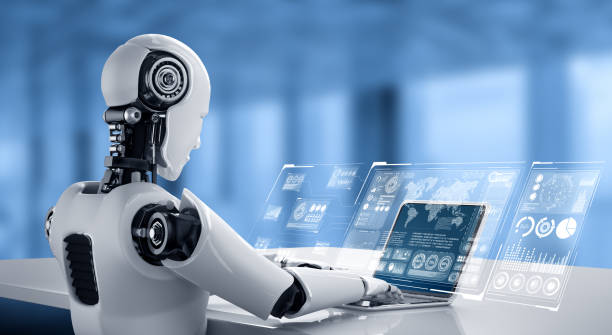Machine Learning: A Revolution in the Making
Unveiling the Power of Algorithms

Yes, this is a blog entry regarding machine learning:
Machine Learning: The Coming Revolution
Unveiling Algorithms' Power

Computer science's machine learning (ML) discipline gives computers the ability to learn without explicit programming. Machine learning algorithms are useful for automatically spotting trends and forecasting outcomes from data. This has sparked a revolution across numerous sectors, including banking and healthcare.
Three primary categories of machine learning exist:
* Supervised education: The algorithm is trained on a collection of labeled data in supervised learning. The algorithm then gains the ability to translate inputs into outputs. Applications of this kind of learning include picture identification, medical diagnosis, and spam filtering.
* Unsupervised education: There is no labeled data provided to the algorithm in unsupervised learning. Next, the algorithm needs to look for patterns on its own in the data. Tasks like fraud detection, anomaly detection, and client segmentation are performed using this kind of learning.
* Learning reinforcement: The algorithm gains knowledge by interaction with the environment in reinforcement learning. When the algorithm performs an action that results in the anticipated outcome, it is rewarded; when it doesn't, it is penalized. Activities like playing video games, controlling robots, and operating self-driving cars all involve this kind of learning.
Apps for Machine Learning
Applications for machine learning are numerous and include:
Healthcare: ML algorithms are used to create novel medications, detect illnesses, and customize treatment regimens.
Finance: ML algorithms help with risk assessment, fraud detection, and investment decision-making.
Retail: Supplies chains are managed, pricing is optimized, and product recommendations are made using ML algorithms.
Production: Machine learning algorithms are used to enhance quality control, forecast equipment breakdowns, and streamline production procedures.
transit: ML algorithms are applied to enhance public transit, create self-driving automobiles, and optimize traffic flow.
Advantages of Machine Learning
Several advantages of machine learning include:
Enhanced accuracy: ML algorithms are capable of producing forecasts that surpass the accuracy of human specialists.
Reduced costs: Businesses can save money by automating tasks with the help of ML algorithms.
Enhanced productivity: ML algorithms have the ability to operate seven days a week, twenty-four hours a day.
Better decision-making: Machine learning algorithms are able to reveal information about data that would be hard to uncover using more conventional techniques.

Difficulties with Machine Learning
Additionally, there are some difficulties with machine learning, such as:
Quality of data: The effectiveness of an ML algorithm depends critically on the quality of the data used to train it. Predictions based on faulty data may be off.
Bias: The biases of the training data may be reflected in the ML algorithms. Discriminatory effects might result from this.
Comprehensibility: The decision-making process of machine learning algorithms can be hard to comprehend. It could be challenging to trust their outcomes as a result.
Machine Learning's Future
Although machine learning is still in its infancy, it has already had a significant influence on a wide range of businesses. In the upcoming years, ML algorithms are probably going to have an even bigger influence as they keep becoming better.
The following are some of the developments that will probably influence machine learning in the future:
Comprehensible AI: To improve the explainability of machine learning algorithms, researchers are creating new methods.
AI for social good: Many social issues, like poverty, sickness, and climate change, are being addressed via machine learning.
Augmented reality: New applications for augmented reality are being developed using machine learning.
Edge computing: By moving machine learning to the network's edge, latency can be decreased and performance can be enhanced.
Quantum computing: ML could undergo a revolution thanks to quantum computing.
One of the most formidable tools in the world, machine learning has the ability to address many of the current issues facing society. ML algorithms are expected to become more and more important in our lives as they advance.











































































































































































































